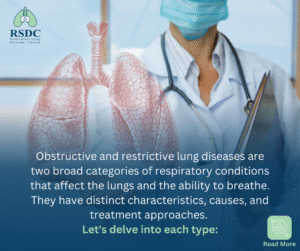Oncologist_ The Role of a Cancer Specialist
Oncologist: The Role of a Cancer Specialist
Read Time: 11 mins
An oncologist is a medical professional specializing in diagnosing and treating cancer. Typically, a primary care physician will refer a patient to an oncologist if they suspect cancer after conducting diagnostic tests. Oncologists may focus on specific types of cancers, such as medical, radiation, surgical, preventive, or palliative oncology. In addition to this, some oncologists specialize in particular areas, such as breast or neurological cancers.
Understanding Oncologist Referrals
When cancer is suspected or diagnosed, your healthcare provider will likely refer you to an oncologist. This is an important decision, and it’s essential to choose the right specialist for your care. Here are some factors to consider when selecting an oncologist:
-
Consult with Your Healthcare Provider: Ask your doctor for a list of recommended oncologists and inquire about their areas of expertise. Don’t hesitate to ask, “If you or a loved one were in my situation, which oncologist would you trust?”
-
Get Recommendations from Others: Talk to people in your community who are undergoing cancer treatment or have had similar diagnoses. Their experiences can help guide your decision.
-
Check Physician Referral Services: Many hospitals or communities offer referral services that provide information on local oncologists, including their specialties, qualifications, and office locations.
-
Review Your Health Insurance: Ensure that the oncologists you’re considering are covered by your insurance and accept new patients.
The Role of an Oncologist in Diagnosis and Treatment
An oncologist is trained to diagnose, treat, and manage cancer. Their responsibilities include:
-
Diagnosis: Determining the type and stage of cancer.
-
Treatment Planning: Developing a personalized treatment plan, which may include chemotherapy, radiation, or surgery.
-
Overseeing Treatment: Administering treatments or working with other specialists.
-
Follow-up Care: Monitoring the patient’s progress and managing any side effects or complications from treatment.
-
Cancer Research and Education: Oncologists may also contribute to clinical trials and advance cancer research.
Specialties within Oncology
There are several types of oncologists, each focusing on a specific aspect of cancer treatment. Here are the main categories:
-
Medical Oncologists: Specialize in chemotherapy, hormone therapy, and other medical treatments.
-
Surgical Oncologists: Perform surgeries to remove tumors or take biopsies for testing.
-
Radiation Oncologists: Use radiation therapy to treat cancer.
Other specialized oncologists include:
-
Pediatric Oncologists: Treat children and adolescents with cancer.
-
Geriatric Oncologists: Focus on cancer care for individuals over the age of 65.
-
Gynecologic Oncologists: Specialize in cancers of the female reproductive system.
-
Hematologic Oncologists: Treat blood cancers, such as leukemia and lymphoma.
-
Neuro-Oncologists: Handle cancers of the brain and nervous system.
-
Urologic Oncologists: Focus on cancers of the urinary tract, including the kidneys, bladder, and prostate.
-
Thoracic Oncologists: Specialize in cancers of the chest, including the lungs and esophagus.
Choosing the Right Oncologist for Your Cancer Type
When selecting an oncologist, consider the following factors:
-
Experience: How many patients with your type of cancer have they treated? What is their success rate?
-
Hospital Affiliations: Where do they practice, and do they have privileges at a reputable cancer center?
-
Insurance: Ensure the oncologist is covered by your health plan.
-
Comfort and Communication: It’s essential to feel comfortable with your oncologist and confident in their ability to communicate and support you.
How to Vet an Oncologist Near You
When selecting an oncologist, consider their experience, qualifications, and communication style. Ask about:
-
Their Experience: How many cases similar to yours have they treated?
-
Hospital and Cancer Center Affiliations: Where do they practice, and do they have access to the latest cancer treatments?
-
Success Rates: Understand their approach to defining success in cancer treatment.
-
Involvement in Research: Are they participating in clinical trials or using the latest research to inform their practice?
Expert Tips for Finding the Right Oncologist
-
Check for up-to-date certifications and licenses.
-
Don’t hesitate to seek a second opinion if you’re unsure about the diagnosis or treatment plan.
-
Ask about the oncologist’s approach to palliative care, especially if you’re in advanced stages of cancer or managing chronic pain.
Key Takeaways
-
Oncologists are specialists trained in the treatment of cancer.
-
It’s crucial to select an oncologist with experience in treating your specific type of cancer.
-
Referrals, recommendations, and health insurance considerations should guide your choice.
-
Oncologists may work in multidisciplinary teams to provide comprehensive care and support during your cancer journey.









